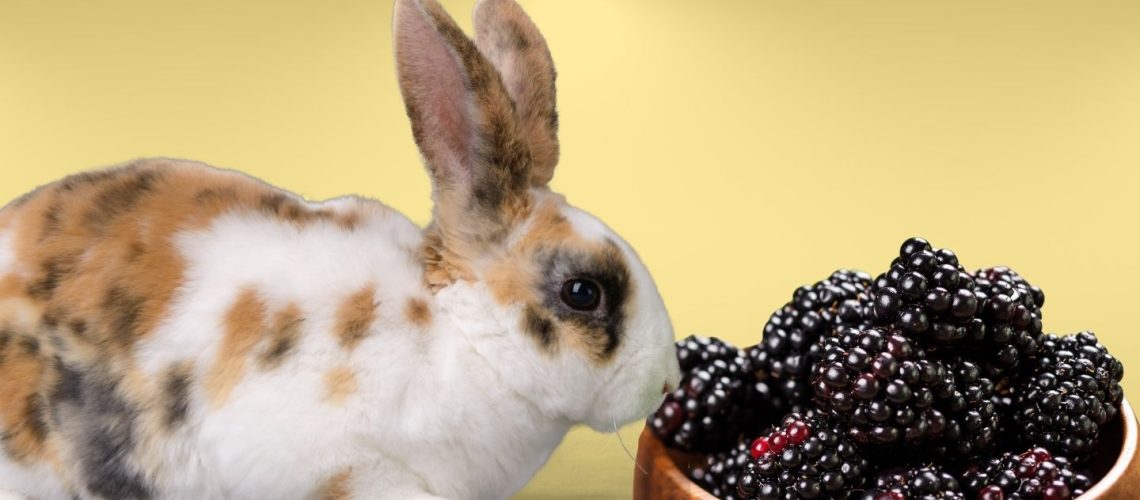Can rabbits eat blackberries? The short answer is yes. Blackberries are a tasty and nutritious treat for rabbits, providing essential vitamins, fiber, and antioxidants. However, it is vital to feed them in moderation to prevent digestive upset and weight gain. A balanced diet is crucial for your rabbit's overall health.
Nutritional Benefits of Blackberries
Vitamins C and K
Blackberries are an excellent source of vitamins C and K, which are essential for maintaining a robust immune system and supporting healthy bone development in rabbits.
Fiber and Antioxidants
Blackberries are packed with dietary fiber, which promotes healthy digestion, and antioxidants that protect the body against oxidative stress.
Potential Risks of Feeding Blackberries to Rabbits
Due to their high sugar content, feeding excessive amounts of blackberries to rabbits can lead to digestive upset and weight gain. It is essential to control portion sizes and ensure they are only offered as an occasional treat.
Importance of a Balanced Diet for Rabbits
Hay as the Main Food Source
Rabbits require hay as the primary component of their diet, as it provides the necessary fiber for healthy digestion.
Rabbit Pellets and Their Role in a Rabbit's Diet
In addition to hay, rabbits also need a small number of high-quality rabbit pellets to provide essential nutrients like vitamins, minerals, and protein.
Fruits and Vegetables as Treats
Fresh fruits and vegetables can be offered as occasional treats for your rabbit, but make sure to choose those that are safe and healthy for rabbits.
How to Introduce Blackberries to Your Rabbit's Diet
Slowly Incorporating Blackberries
When introducing blackberries to your rabbit's diet, start with just a few berries at a time and gradually increase the amount if your rabbit tolerates them well.
Monitoring Your Rabbit's Reaction
Watch for any signs of digestive issues, such as diarrhea or bloating, and consult your veterinarian if you have any concerns.
Proper Feeding Guidelines for Blackberries
Determining the Appropriate Portion Size
As a general rule, rabbits should be given no more than a tablespoon of blackberries per day, but the actual amount may vary depending on your rabbit's age, size, and activity level.
Frequency of Feeding Blackberries to Rabbits
Blackberries should be fed only occasionally to prevent overconsumption and imbalances in your rabbit's diet.
Signs of Overfeeding and How to Avoid It
Monitor your rabbit's weight and adjust the portion sizes accordingly to ensure they maintain a healthy weight. If you notice any signs of digestive issues or weight gain, reduce the frequency of feeding blackberries.
The Importance of Feeding Organic Blackberries
Pesticides and Their Effects on Rabbits
Pesticides and other chemicals used on non-organic blackberries can be harmful to your rabbit. Always opt for organic blackberries to minimize these risks.
How to Choose Organic Blackberries
Look for organic or pesticide-free labels on the packaging when purchasing blackberries or buy from reputable farmers' markets or local organic farms.
Alternatives to Blackberries for Rabbits
Other Suitable Fruits for Rabbits
Apples, strawberries, and blueberries are also safe, healthy options for rabbits when fed in moderation.
Vegetables That Are Safe for Rabbits
Leafy green vegetables such as romaine lettuce, kale, and spinach, as well as herbs like basil and parsley, are safe options for rabbits to enjoy.
When to Consult a Veterinarian
Signs of Digestive Issues in Rabbits
If your rabbit experiences diarrhea, excessive gas, or bloating after consuming blackberries, consult your veterinarian for advice.
Adjusting Your Rabbit's Diet Based on Veterinary Advice
Your veterinarian can help you determine the appropriate portion sizes and frequency of feeding blackberries, as well as recommend alternative treats if needed.
Conclusion
In conclusion, blackberries are a tasty and nutritious treat for rabbits when offered in moderation, as part of a balanced diet. Before feeding blackberries to your rabbit, ensure they are washed and organic. Be mindful of portion sizes, and monitor your rabbit's reaction. If you have any concerns, consult your trusted veterinarian. A healthy, happy rabbit is ultimately the most important goal.











